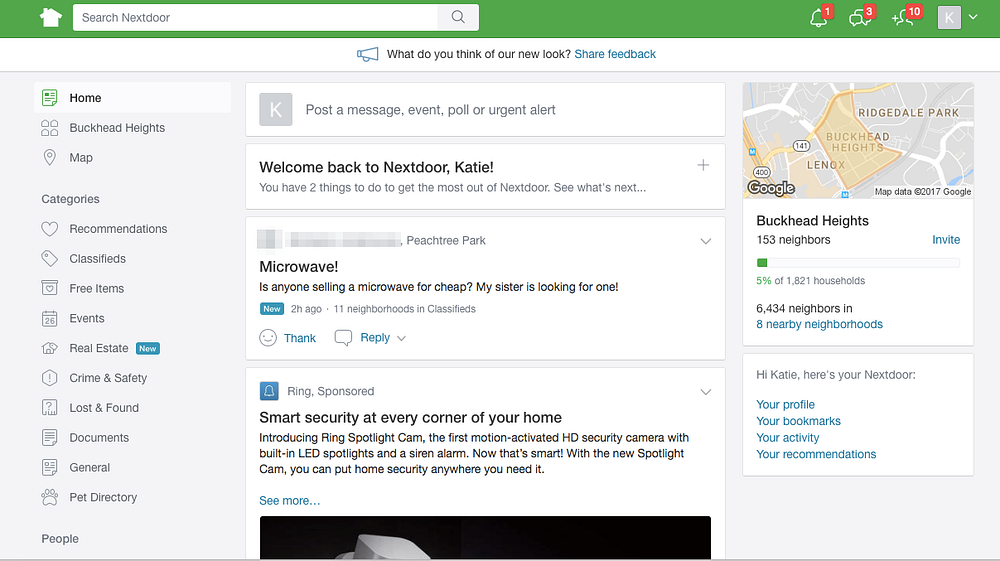Gone, mostly, are the days of asking your neighbor to borrow a cup of sugar. When I was growing up, my mother viewed our neighbors with irritation — their principal crimes were overdoing their Christmas decorations, and on one occasion, drunk-driving through our fence. I can count on one hand the pleasant neighborly interactions I’ve had as an adult. Once, in my upscale urban neighborhood in Atlanta, my fiancé asked another neighbor for an egg — he eyed us with suspicion, as if blueberry muffins were a pretext for some sort of political scam or a multi-level marketing scheme. Now, irritation generally characterizes my relationship with my neighbors. Why would you wear heels when you have hardwood floors and a downstairs neighbor? Who still listens to the Barenaked Ladies, much less on repeat? But I also have intense curiosity, and in the absence of peeking through my neighbors’ windows as I walk by, which is hard to do in a high-rise, I have Nextdoor.
Nextdoor, for the sane and detached among you, is a social media platform that’s locality-driven, an alternative to meetings you actually have to show up for, neighborhood Facebook groups that might give away a little too much information about you, or listservs that clog your inbox. When you sign up, you give your address, which the company verifies by credit card billing address, phone billing address, or postcard. You have access only to your neighborhood and a few surrounding hoods. It’s a place to post about a lost dog or found kittens, advertise an estate sale, or ask for recommendations for a handyman from fellow residents.
My neighborhood’s Nextdoor includes a space for officials to communicate with residents, like the Atlanta Police Department and the Department of Watershed Management. The categories for posts from residents include classifieds, crime and safety, documents (almost never used), free items, general, lost and found, pet directory, recommendations, events calendar, real estate. More than 150,000 neighborhoods in the U.S., U.K., and Netherlands are on Nextdoor, according to Fortune. It was valued at about $1 billion in 2015.
“Community building” is usually more of a buzzword or phrase on social media, but in this case, it’s quite literal. The idea is that Nextdoor promotes community engagement with the people in your actual, geographic community, and that it would build social capital and better citizens. Instead, it’s been heavily criticized for contributing to fear, distrust, and racist behavior. There are also coyote sightings, warnings about the Starbucks Unicorn drink, and requests to borrow someone’s kombucha scoby.







